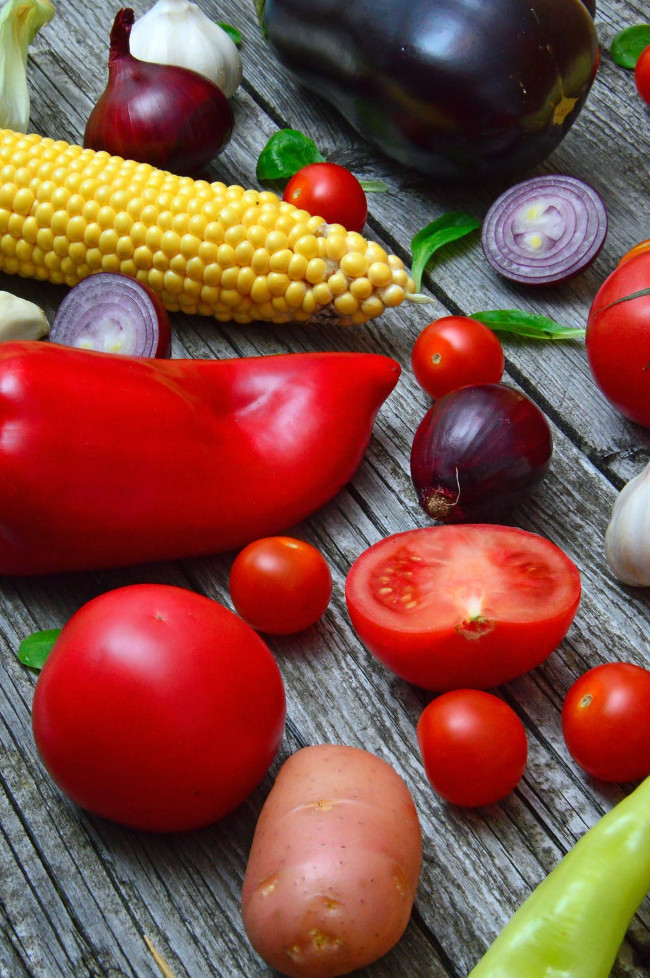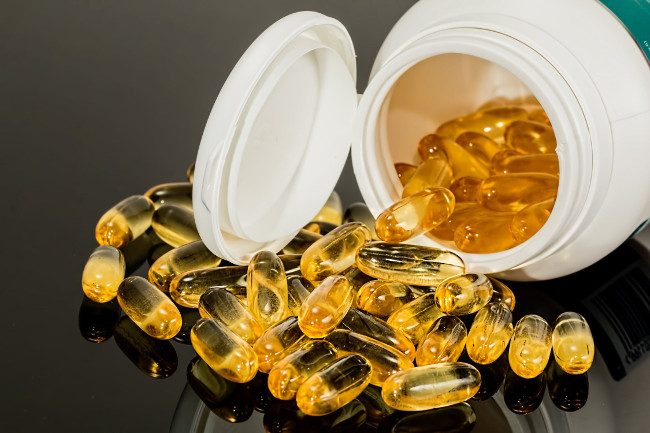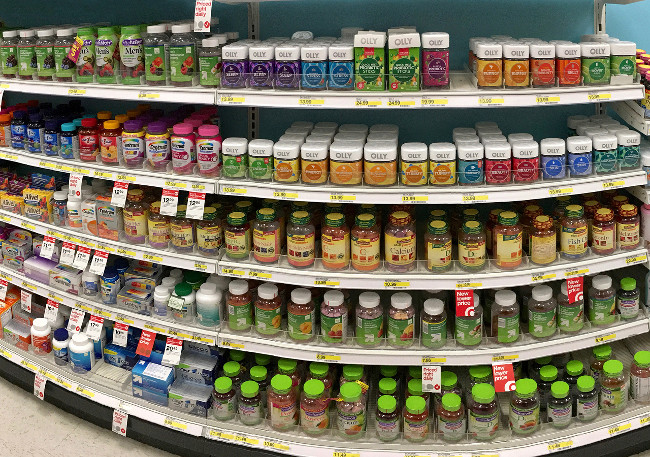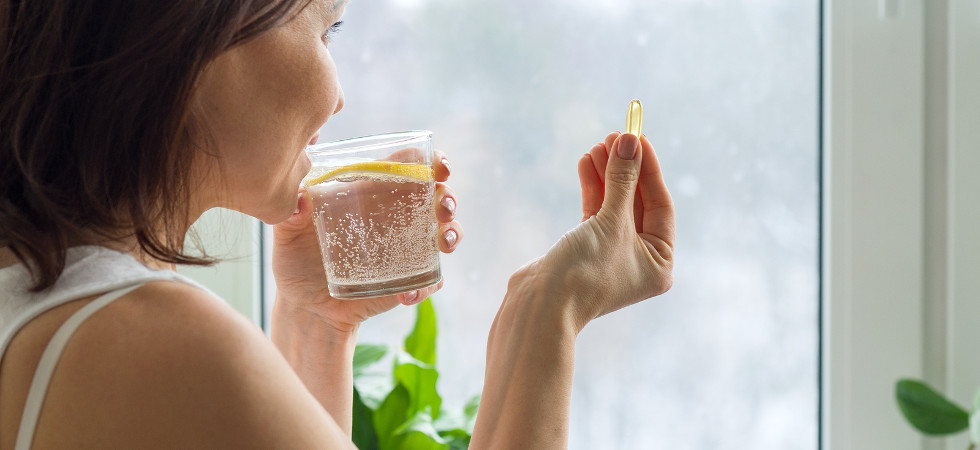If there’s one thing you can’t put a price on, it’s your health. It’s often said that you don’t think to appreciate until it’s gone – but, by giving yourself a little care and attention and investing in looking after yourself, you can prevent a plethora of problems before they arise and maintain optimum levels of health. If you want to be the best possible version of you, then paying a little extra attention to your diet is the first step to getting there.
There are certain health issues that are more commonly seen in women than men, and the good news is that many of them are preventable – all you have to do is ensure you’re getting the right amounts of some crucial vitamins and minerals, which will usually come from a balanced diet. If, however, you follow a specialist diet such as vegetarian or vegan, or suffer from food allergies or intolerances, it might prove a little trickier to keep your levels in check – so what do you do if you’re concerned you’re not getting everything your body needs from your daily meals?
In the UK, 64% of the population do not manage to eat their five portions of fruit and vegetables a day, and often, that’s not through want of trying. Busy lifestyles and hectic schedules can often make it difficult to plan meals and cook nutritious dishes from scratch – and many of us can find ourselves falling short of the ideal.
It’s a good idea to visit your GP for regular blood tests so that you can monitor your vitamin levels and spot any possible deficiencies before they happen. Symptoms such as fatigue, brain fog and muscle twitches can all be tell-tale signs that you’re not getting enough of certain vitamins, so if you notice anything similar, then go and get yourself checked out.

Multivitamins can be a great way to fill in any potential gaps in your diet whilst aiming to meet your nutritional needs through a balanced diet, and with a whopping 64% of Brits admitting to eating the same selection of foods every day, they can be a valuable way of keeping your health on track. Most vitamins come in tablet or spray form, and are taken once daily – but be sure to read the instructions and follow your GP’s advise before you begin taking anything new.
Micronutrient deficiency
With a typical British diet, micronutrient deficiency can happen at any age and to gender. However, as women age, they become more prone to vitamin and mineral deficiencies. Deficiencies in iodine, vitamin D, calcium, iron, vitamin B-12, and folate are the most common in women. But what are the symptoms to look out for, and what can you do to treat or avoid any issues?
Iodine deficiency
The Centers for Disease Control and Prevention has reported that women between the ages of 20-39 have lower urine iodine levels. Iodine deficiency causes our body not to produce enough thyroid hormones, which helps in our metabolism. A lack of iodine in the body often also leads to having a goiter – in other words, a large swelling in the neck, where the thyroid gland is found – and can be dangerous for pregnant women.
Foods containing iodine include fish such as cod and tuna, along with prawns and other shellfish. Other rich sources include dairy products such as milk, yoghurt and cheese – so add these to your diet where possible to try to naturally boost your levels.
If you’re vegetarian or vegan, then you might want to take a daily supplement to maintain optimum levels.

Vitamin D deficiency
Some women avoid sun exposure in order to protect their skin from cancer risks and the early signs of ageing, but this can often result in a Vitamin D deficiency. This important micronutrient is essential for bone health of both pregnant and older women, and deficiency can be a trigger for type 2 diabetes, obesity and rickets, or distortion of a foetus’ bones (for pregnant women).
Try to spend at least 10 minutes outdoors in daylight each day to get your Vitamin D fix, and add fatty fish such as tuna, mackerel and salmon, plus cheese and egg yolks to your diet. Those who follow specialist diets can try fortified alternatives such as some orange juices, dairy products and cereals.
If you find yourself suffering from fatigue and low mood in the winter months, then low Vitamin D levels could be to blame. Supplementing with a Vitamin D spray (which is more easily absorbed than tablets) each day can help to ease your symptoms.
Calcium deficiency
As women age, they tend to be at risk of osteoporosis. Funny enough, vitamin D works together with calcium, so the moment you become deficient in vitamin D, you’ll also lack in calcium, and that’s a double threat for your health. You’ll never know you’re suffering from calcium deficiency until it’s too late, so ensure you’re getting enough dairy or fortified alternatives into your diet on a regular basis.
Iron deficiency
All women are vulnerable to lack of iron as they regularly suffer from blood loss during monthly menstruation. An iron deficiency can cause anemia, leaving you feeling tired, run down and short of breath, so it’s important to incorporate enough iron sources into your diet to ensure you’re getting enough. Pregnant women may suffer from low levels of iron too, as their blood is one of the primary support of their growing babies – so it’s wise to talk to your doctor about supplementation as soon as you find out you’re expecting.
Rich sources of iron include red meats such as beef and lamb, along with dark green leafy vegetables including kale, spinach and broccoli.

Vitamin B-12 deficiency
Vitamin Bs play essential roles in one’s red blood cell production, digestion, and neurological function, helping your body to use fat and carbohydrates for energy and make new proteins. But as the number of vegetarian and gluten-free diets increases, the number of women with low vitamin B-12 is growing, too. Women at any age may suffer from a B12 deficiency, but it’s more common in older women, with symptoms including weakness, fatigue and dizziness.
Try adding some more shellfish to your diet, or having low fat yoghurt or eggs for breakfast each day to keep your levels up. If that doesn’t cut it, then your doctor may prescribe regular infusions – a treatment that has been shown to be effective in temporarily restoring B12 levels and that may need to be repeated at a later date.
Folate deficiency
To replenish the vitamins and minerals you lose during menstruation, you’ll need to take a combination of vitamin B-12 and iron to prevent anaemia. Another way to avoid anaemia is by taking proper folate or vitamin B-9 (folic acid) supplements on a regular basis. If you’re hoping to conceive, it’s recommended to keep an adequate level of folate for a year before doing so, so talk to your doctor and have your levels monitored before you start to plan a family.
Eating a healthy, balanced diet is the best thing you can do to prevent vitamin and mineral deficiencies from impacting your health, but FDA approved best vitamins for women can help for those on more restrictive diets, such as vegetarian or vegan, or those with food allergies and intolerances.
If you’re still worried that you might not getting enough vitamins and minerals into your body, it’s best to talk to a medical professional to rule out the possibility of an underlying condition, which may be preventing the absorption of these important micronutrients.
Your doctor can also advise you on the correct dosages for any supplements you may need, helping to ensure that you’re on top of your health and raring to go, whatever your age or diet.






















